| Projekte | Laufzeit | Projektleitung | Projektmitarbeitende |
|---|---|---|---|
Human Microbiomes and Antibiotic Resistance | 01.01.2020 - 31.12.2022 | Prof. Dr. Dr. Urban Wiesing | Dr. Davina Höll |
| Symptom-Checker Apps auf Basis künstlicher Intelligenz | 01.03.2020 - 28.02.2023 | Prof. Dr. Stefanie Joos | Prof. Dr. Hans-Jörg Ehni; Regina Müller, M.A.; Dr. Robert Ranisch; Prof. Dr. Dr. Urban Wiesing |
| EKAMED - Ethik in der Katastrophenmedizin | 01.06.2020 - 31.05.2022 | Prof. Dr. Dr. Urban Wiesing; Prof. Dr. Hans-Jörg Ehni | Mara Mühleck |
| SFB 923 „Bedrohte Ordnungen“, Teilprojekt G05: Bedrohung und Stabilität der Medizinischen Wissensordnung. Ebola in Westafrika und Bedrohte Ordnungen der Medizin (2013-2016) | 01.07.2019 - 30.06.2023 | Prof. Dr. Dr. Urban Wiesing; PD Dr. Henning Tümmers | - |
EthOPE: Ethische Aspekte der Prävention von Adipositas in Europa | 03.2017 - 12.2018 | Prof. Dr. Dr. Urban Wiesing | Prof. Dr. Eugenijus Gefenas; Prof. Dr. Inez de Beaufort; PD Dr. Hans-Jörg Ehni; Dr. Joanna Rozynska; Dr. Signe Mezinska |
'Gesundheiten' in der pluralistischen Gesellschaft. Die Differenz von Gesundheitsvorstellungen und ihre ethischen, sozialen, medizintheoretischen und rechtlichen Konsequenzen | 2015 - 2017 | PD Dr. phil. Hans-Jörg Ehni (PI) | Professor Dr. med. Dr. phil. Urban Wiesing |
Ein gutes Jahr mehr | 06.2017 - 05.2019 | Prof. Dr. phil. Hans-Joerg Ehni; Prof. Dr. med. Monika A. Rieger | Dr. Selma Kadi; Dr. Achim Siegel; Lisa Frebel, M.A.; Luise Fleisch, B.A. |
"Gelingendes" und "gesundes" Alter(n) in der pluralistischen Gesellschaft. Systematische Übersicht ethischer Fragen | 02.2017 - 12.2019 | Prof. Dr. Hans-Jörg Ehni | Dr. Selma Kadi |
Klausurwoche Kinderwunsch und Genomeditierung | 10.07.2017 - 14.07.2017 | Dr. phil. Selma Kadi | Dr. med. Zoé Rheinsberg |
Diskurs: Biogerontologie (zweiter Teil) | 01.07.2015 - 30.11.2016 | Uta Müller; Julia Dietrich; Hans-Jörg Ehni | Dipl.-Biol. Leona Litterst; Dr. med. Zoé Rheinsberg |
Diskurs: Biogerontologie | 02.2012 - 01.2013 | Julia Dietrich; Hans-Jörg Ehni | Mone Spindler |
| Primate Systems Neuroscience | 01.03.2014 - 01.02.2017 | Urban Wiesing; Jens Clausen | Gardar Arnason |
Wissenstransfer tiefe Hirnstimulation | 10.2013 - 09.2016 | Prof. Dr. Jens Clausen; Prof. Dr. Dr. Urban Wiesing | Oonagh Hayes; Dr. Claudia Sassenrath; Prof. Dr. rer. nat. Dipl.-Psych. Kai Sassenberg; Insa Feinkohl; Prof. Dr. rer. soc. Dipl.-Psych. Ulrike Cress; Dr. Joachim Kimmerle |
Die ethische und rechtliche Relevanz des Krankheitskonzepts | 01.01.2001 - 31.12.2002 | Dr. Micha H. Werner; Dr. Nadia Mazouz; Prof. Dr. Dr. Urban Wiesing | |
Nachlass Richard Koch | 01.02.2000 - 31.01.2003 | Frank Töpfer; Prof. Dr. Dr. Urban Wiesing | |
Immanuel Kant und die Medizin | 01.02.1999 - 31.01.2002 | Gabriele Santel; Prof. Dr. Dr. Urban Wiesing | |
TEMPE (Teaching Ethics: Material for Practitioner Education) | 01.03.200 - 28.02.2002 | Dr. Jürgen Boomgaarden; Prof. Dr. Dr. Urban Wiesing | |
Ethische Grundpositionen zur Mittelverteilung in der Gesundheitsversorgung | 2000 - 2002 | Dr. Georg Marckmann, MPH; Paul Liening, MA; Prof. Dr. Dr. Urban Wiesing | |
Ethics and Priorities in Health Care. A European Perspective | 09.10.2003 - 12.10.2003 | Georg Marckmann, MD, MPH; Prof. Urban Wiesing, MD, PhD, | |
Ethische Probleme der medizinischen Forschung in Osteuropa (Schwerpunkt Biotechnologie) | 01.10.2006 - 28.02.2008 | Hans-Jörg Ehni | Urban Wiesing; Andres Soosaar; Oana Iftime; David Townenend; Darina Zinovieva; Konstantin Pehlivanov; Josef Kure; Beatrice Ioan; Peter Sykora |
Placebo in klinischen Versuchen | 01.06.2005 - 25.10.2006 | Hans-Jörg Ehni | |
Wissenstransfer tiefe Hirnstimulation | 10.2013 - 09.2016 | Prof. Dr. Jens Clausen; Prof. Dr. Dr. Urban Wiesing | Oonagh Hayes; Dr. Claudia Sassenrath; Prof. Dr. rer. nat. Dipl.-Psych. Kai Sassenberg; Insa Feinkohl; Prof. Dr. rer. soc. Dipl.-Psych. Ulrike Cress; Dr. Joachim Kimmerle |
Heidegger und die Medizin | |||
Freud Projekt | 2008 - 2010 | G. Fichtner; A. Hirschmüller; I. Grubrich-Simitis | Gesine Kästner, M.A. |
Binswanger-Projekt | 2000 - 2003 | Albrecht Hirschmüller | Annett Moses |
Alternsmedizinische Innovationen | Hans-Jörg Ehni | ||
Anti-Aging-medizin | 01.07.06-30.06.09 | Prof. Dr. Georg Marckmann, MPH | Dr. phil. Hans-Jörg Ehni; Prof. Dr. Leena Bruckner-Tuderman; Prof. Dr. Giovanni Maio; Prof. Dr. Lore Hühn; Dr. Dipl.-Komm.wirt Holger Gothe |
Allokation | 01.07.06-30.06.09 | Prof. Dr. med. Georg Marckmann, MPH | Prof. Dr. med. Dr. phil. Daniel Strech, M.A. |
Aids als Bedrohung der ärztlichen Berufsordnung und der politischen Ordnung. Mediziner und Aids in der Bundesrepublik und der DDR (1981 – 1989) | Dr. Henning Tümmers | ||
Wissenschaftliche evidence und Präventionsentscheidungen im digitalen Zeitalter: Die HPV-Schutzimpfung | Prof. Dr. Dr. U. Wiesing; Dr. R. Kühl, Dr. H. Tümmers | Irene Poczka |
Abgeschlossene Projekte
Zertifikate und Verbände

Focus: Top Nationales Krankenhaus 2025

Stern: Deutschlands Ausgezeichnete Arbeitgeber Pflege 24/25

Qualitätspartnerschaft mit der PKV

Erfolgsfaktor Familie

Die Altersvorsorge für den Öffentlichen Dienst





